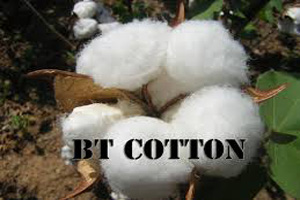
UK pushes use of Bt Cotton in Tanzania to increase production
YarnsandFibers News Bureau 2014-04-22 15:00:00 – TanzaniaTanzania has turned be become a net clothing importer with most of the clothing coming from the United States, European Union, China and India, after the break down of its textile industries in late 1980s and later on in 1990s with privatization. Cotton in Tanzania is a sector which has huge potential thus UK trying to push use of Bt cotton to increase the output.
According to Mr. Paterson, British Secretary of State for Environment, Food and Rural Affairs, adapting of genetically engineered cotton (Bt cotton) by farmers in most countries is certain as there are more benefits to Bt cotton cultivation especially among poor smallholder farmers.
It is a fact that majority of people are wearing clothes made from GM crops as two thirds of global cotton production is from GM based.
For Tanzania, cotton means life and the better the seeds the more the production. Technology can help change agricultural growth and genetic engineering is one way of increasing productivity and boosting incomes for local farmers. With about 40 per cent of all Tanzanians rely directly or indirectly on the cotton industry most of which are smallholder farmers.
Burkina Faso, an African country Bt cotton has transformed lives of smallholder farmers is a good example to look at as this technology has benefit more poor country farmers.
In Africa, Burkina Faso and Sudan are the two countries who have continued progress by increasing their Bt cotton hectarage substantially, as per the report from International Service for the Acquisition of Argi-biotech Applicationsthe (ISAAA). In 2013, an additional seven African countries (Cameroon, Egypt, Ghana, Kenya, Malawi, Nigeria and Uganda) have conducted field trials on a broad range of biotech crops which include cotton and several other crops.
The country’s biotech enthusiasts who are targeting cotton as the first crop, genetic engineering should be introduced because after all they are already paying billions in imported Bt cotton clothes.
According to Commission for Science and Technology (COSTECH) Senior Programme Officer for Agriculture Dr Nicholas Nyange argued that it will be both immoral and defies logic to deny local cotton farmers cultivate Bt cotton while importing clothes made from the fiber using billions of shillings of local consumers. As farmers, deserve to have a stake in this highly paying sector.
While technology critics are raising alarm that by allowing local farmers uses BT cotton is likely to create a disastrous outcome. To take, India where the government has approved cultivation of a number of GM crops including Bt cotton, an estimated 200,000 smallholder farmers have committed suicide between 1997 and 2002 mainly because of debts blamed on hiked prices of Bt seeds. As the technology is owned and controlled by multinational corporations led by US based giant, Monsanto, is a recipe for disaster.
Market Intelligence
Ask for free sample Report

experience
Customer Base
dedicated team
Countries Served Worldwide









